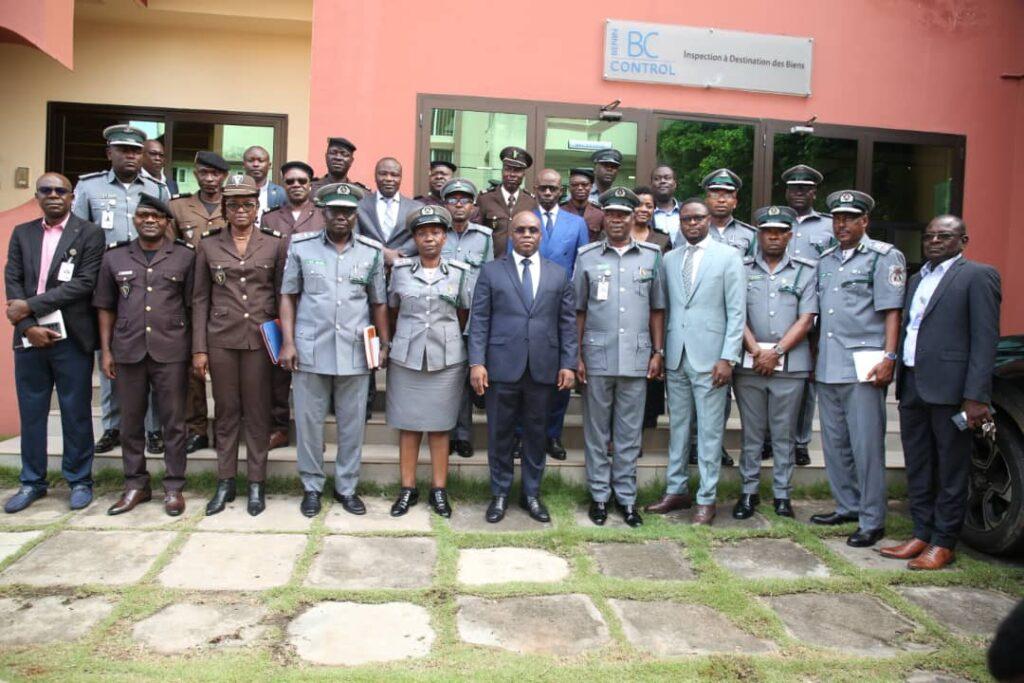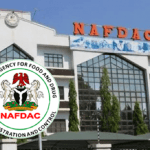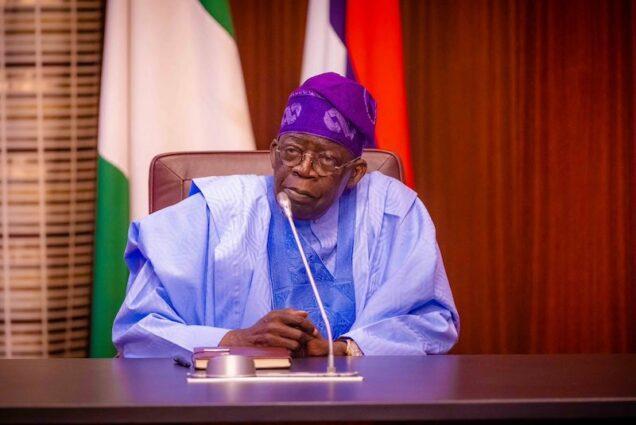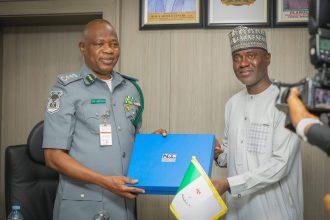In a bid to promote the ECOWAS trade liberalisation scheme and the facilitation of the movement of goods and community products in particular, the Nigeria Customs Service (NCS) and the Benin Republic counterpart on Monday agreed to address the multiple taxes on transit cargoes along the ECOWAS corridor.
The two bordered countries also agreed to harmonize the import prohibition policy to ensure that whatever was banned in Nigeria would also be banned in Benin.
This disclosure was made known by the Acting Comptroller-General of NCS, Mr Adewale Adeniyi, during a working visit to Cotonou, Benin Republic on Monday.

“On the measures to be taken to ensure a good relationship between the two countries, there is a need to promote the ECOWAS trade liberalisation scheme and the facilitation of the movement of goods and community products in particular.
“Ensure the removal of barriers and other obstacles to legitimate trade and the establishment of customs units when the traffic justifies it.
“Ensure strict compliance with transit rules and harmonisation of the list of products prohibited by the two countries.
“There should be rapid integration of Nigeria into the Interconnected System for the Management of Goods in Transit (SIGMAT) which already includes the Customs Administrations of Benin, Burkina Faso, Côte d’Ivoire, Ghana, Guinea, Mali, Niger, Senegal and Togo,” he said.
He further pointed out that the two countries had agreed to strengthen the fight against cross-border crime through cooperation, intelligence sharing and the pooling of resources.
“Nigeria and the Benin Republic would be holding meetings twice a year to discuss matters of common interest. There will be the reactivation of the joint committee for monitoring trade and transit relations. Also there will be a revival of consultation frameworks of border customs units with the active participation of the private sector,” he said.
Adeniyi thanked his counterpart from Benin Republic, the Senior Minister in charge of Economy and Finance, Mr. Romuald Wadagni, Benin Republic President, Patrice Talon, and the people of Benin Republic for the warm welcome.
In his response, Hinkati accepted the invitation with pleasure, saying the dates would be agreed later.
At the Nigerian Embassy in Benin Republic, Adeniyi told the Nigerian Ambassador to Benin Republic, Mr Olukayode Aluko, that a second look would be taken on the border agreement.
The ambassador urged the acting comptroller-general to use his good office to ameliorate the situation on ground and checkmate illegal checkpoints along the route.
Aluko noted that there was a need for the Customs Boss to engage his Benin counterpart robustly as they were willing to work with Nigeria.
“Benin Republic is eager to do business with us and as such we need to direct our attention to having a conducive environment and ensuring the borders are opened on terms that are comparatively favourable.
“The ultimate goal is to have a Nigeria/Benin Joint Commission and we intend to achieve this by the end of the year,” he said.
The Director-General, Webb Fontaine, Mr. Anicet Houngbo, while welcoming the Nigeria Customs delegates, said that Benin Republic as a big transit hub could not have achieved it without the strong aid from Nigeria.
According to Houngbo, the geographical location of Benin Republic from Nigeria is seen as a great opportunity for them.
He pointed out that the challenge Nigeria was having had to do with the choice of the project owner.
The Customs Boss invited the Director-General of Benin Republic Customs, Mr. Alain Hinkati, to make an official working visit to Nigeria to follow up on the conclusions.

The Comptroller General also visited Webb Fontaine, Port of Cotonou, Ministry of Economy and Finance, and had an interactive session with stakeholders.
At the end of the meeting, a joint communique signed by the two delegations read as follows:
- The continuation of efforts to promote the ECOWAS trade liberalization scheme and the facilitation of the movement of goods and community products in particular;
- Facilitation of the issue of Laisse passe for a short stay in one of the countries of means of transport registered in the other country;
- The removal of barriers and other obstacles to legitimate trade and the establishment of Customs units when the traffic justifies it;
- Strict compliance with transit rules;
- Harmonization of the list of products prohibited by the two countries;
- The rapid integration of Nigeria into the Interconnected System for the Management of Goods in Transit (SIGMAT), which already includes the Customs Administrations of Benin, Burkina Faso, Côte d’Ivoire, Ghana, Guinea, Mali, Niger, Senegal and Togo;
- Strengthening the fight against cross-border crime through cooperation, intelligence sharing and the pooling of resources;
- Holding meetings twice a year to discuss matters of common interest;
- The reactivation of the joint committee for monitoring trade and transit relations;
- The revival of consultation frameworks of border customs units with the active participation of the private sector;
- Promoting good relations with border populations, professionalism and tax compliance;
- Securing the international supply chain.
















